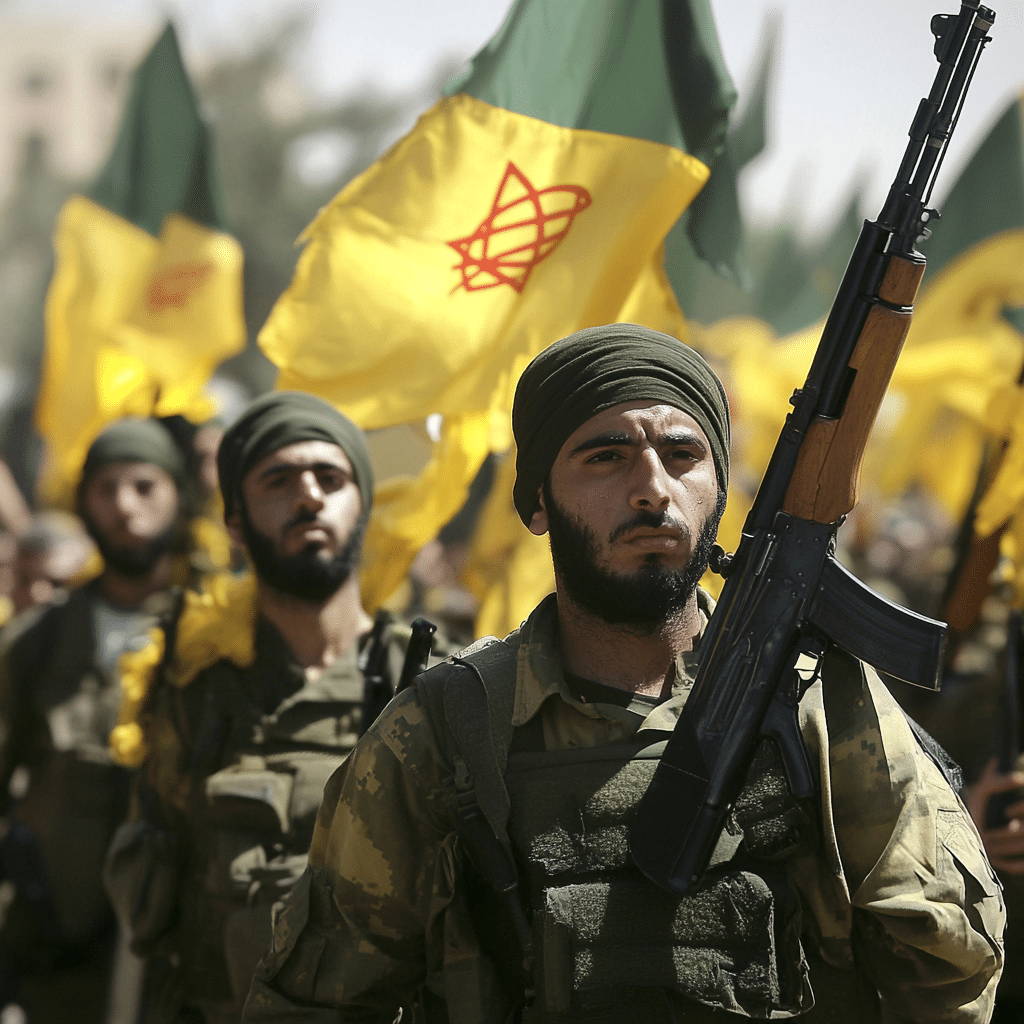The Eastern Mediterranean region, including the complex dynamics of Israel, Hezbollah, and Cyprus, has become a hotbed of escalating maritime disputes. The tensions are rooted in territorial claims over crucial maritime resources, as both Israel and Hezbollah lay claim to areas rich in natural gas. As the stakes rise, the ramifications extend beyond these nations, affecting regional stability and international relations. Understanding the maritime claims and the larger context can shed light on these increasingly fraught interactions.
## Israel, Hezbollah, Cyprus: Tensions Rise Over Maritime Claims
In recent years, the Eastern Mediterranean has emerged as a focal point for disputes linked to energy resources, territorial waters, and geopolitical influence. The maritime claims made by Israel and Hezbollah over Cyprus have intensified tensions in the region. As both sides assert their rights to resources and navigational routes, the implications for regional stability grow increasingly complex.
Israel’s Maritime Claims
Israel’s maritime claims stem from significant investments in natural gas exploration within its exclusive economic zone (EEZ). The discovery of vast reserves like Leviathan and Tamar has positioned Israel as a key energy player. However, its assertive stance conflicts with neighboring countries that contest overlapping maritime zones. As Israel looks to expand its energy exports globally, tension inevitably rises with nations such as Lebanon, which also eye these lucrative resources.
Hezbollah’s Position
On the flip side, Hezbollah—backed by Iran—asserts that Israel’s actions pose a direct threat to Lebanon’s rightful maritime interests. The group has vocalized its intention to respond militarily if Israel encroaches upon what they deem Lebanese waters. This posturing not only highlights the friction between these actors but reinforces Hezbollah’s narrative of resistance against Israeli actions, galvanizing support from their base in Lebanon.
Cyprus’ Role as a Mediator
Caught amidst these maritime disputes, Cyprus has found itself at a geopolitical crossroads. With claims to its EEZ and a complex political landscape marred by its own internal divisions, the island strives to maintain a balanced approach. Cyprus wants to pursue its energy ambitions while also acting as a mediator in the region. However, this balancing act becomes increasingly tricky as tensions worsen between Israel and Hezbollah, forcing Cyprus to navigate its interests cautiously amidst complex diplomacy.

The Intersection of Maritime Claims and Ceasefire Efforts
Israel Gaza Ceasefire and Its Implications for Regional Security
The ongoing conflict in Gaza has significant repercussions for the maritime tensions between Israel and Hezbollah. As negotiations around a ceasefire in Gaza continue, it is important to assess how these developments influence maritime conflicts.
Current State of the Gaza Ceasefire
The fragile ceasefire in Gaza has led to a temporary pause in hostilities. However, unresolved underlying issues continue to complicate relations between Israel and its adversaries. The current situation for Israeli hostages complicates peace talks further, increasing the stakes for both parties. As negotiations unfold, the fate of these hostages intertwines with broader regional stability concerns.
Linking Gaza’s Situation to Maritime Tensions
Currently, the ceasefire has provided space for dialogue but has not diminished Hezbollah’s resolve to challenge Israel’s maritime claims. The group’s recent statements showcase a perception that Gaza’s situation is closely linked to their maritime agenda, emphasizing any Israeli gains at sea as a direct threat to their efforts. This rhetoric fuels the fire of existing tensions and complicates diplomatic engagements further.
Analyzing Hezbollah’s Strategic Objectives in Maritime Disputes
Understanding Hezbollah’s broader strategy within maritime disputes is critical for assessing future risks.
Resistance Narrative
Hezbollah capitalizes on the maritime squabbles to construct a robust narrative of resistance against Israel. By framing their maritime pursuits as a fight for Lebanese sovereignty, they appeal not only to national pride but also rally public support. This attitude reinforces Hezbollah’s ideological stance and paints Israel as an aggressor.
Partnerships and Alliances
Moreover, Hezbollah’s maritime position is bolstered by alliances, notably with Iran, which provides crucial military and financial support. This backing not only enhances Hezbollah’s capabilities for potential conflict but also solidifies its posture in both land and maritime domains. Collaboration with allies increases Hezbollah’s confidence in confronting perceived threats from Israel, making future confrontations more likely.
The Effect of International Dynamics on Israel Hezbollah Cyprus Relations
The Role of Global Powers in Regional Maritime Claims
The involvement of global powers adds complexity to the maritime disputes between Israel, Hezbollah, and Cyprus.
U.S. Posture
The United States’ position remains pivotal in mediating maritime disputes in the region. With recent peace initiatives in the Gulf States, the U.S. aims to maintain stability in the Eastern Mediterranean. However, rising tensions between Israel and Hezbollah can create obstacles to these diplomatic efforts, complicating peace initiatives.
European Union Involvement
The European Union, interested in energy stability, often aligns with Cyprus’ ambitions, pushing for diplomatic solutions while remaining wary of Hezbollah’s military responses. Given the strategic nature of energy resources, the EU’s role may enhance its involvement but also poses risks if conflicts escalate.
Russia and China
Meanwhile, emerging powers like Russia and China play vital roles in shaping the geopolitical landscape. Their relationships with regional players such as Hezbollah or Israel can shift the balance of power. As both nations vie for influence in the Eastern Mediterranean, their actions may significantly impact Hezbollah and Israel’s decision-making processes.

Summary of Insecurity: What Lies Ahead for Israel, Hezbollah, and Cyprus
As the intricacies around Israel, Hezbollah, and Cyprus maritime claims continue, the fragile peace in this geopolitically sensitive area remains at risk. The evolving dynamics surrounding the ongoing Gaza ceasefire, Hezbollah’s ideological battles, and international involvement create a volatile mix.
Acknowledging these factors can enhance understanding of the potential for conflict or resolution in one of the world’s most contested waterways. These ongoing developments challenge both regional and global actors to rethink strategies and reaffirm commitments to peaceful maritime management. Ultimately, the resolution of these issues will rely on local diplomacy and the influence of key international players committed to fostering stability.
As tensions simmer and alliances shift, the future of the Eastern Mediterranean remains uncertain, posing critical questions about security and cooperation in this vital geopolitical arena.
Tensions Over Maritime Claims: Israel, Hezbollah, and Cyprus
The Historical Background of a Tense Relationship
The geopolitical landscape of the Mediterranean has always been intertwined with various interests, particularly in the case of Israel, Hezbollah, and Cyprus. Did you know that these tensions can be traced back to deeply rooted historical disputes over territory and resources? Just as James Patterson’s books in order depict intricate plots with twists and turns, the relationship between Israel and Hezbollah has many dramatic elements. The maritime claims further complicate these dynamics, illustrating how nations often clash over limited resources.
Maritime Disputes and Their Implications
Recent escalations highlight maritime boundaries that have become flashpoints in this ongoing saga. The struggle over oil and gas reserves off Cyprus has caught the interest of global powers, much like the buzz around a BBC surprise segment that catches viewers off guard. Cyprus finds itself at a crossroads, balancing agreements with neighboring nations while being cautious of potential confrontations. It’s a harrowing time for island nations, as geopolitical interests often overshadow local concerns. It’s surprising how interconnected these disputes can be—think of Paul Chryst’s tactical strategies in football, where each move significantly impacts the outcome.
The Bigger Picture
One cannot discuss these tensions without mentioning the wider implications for regional security. As tensions rise, the involvement of international actors could shift alliances and create unforeseen consequences. This is reminiscent of pop culture moments, like Jimmy Kimmel’s segment on Aaron Rodgers, which shine a light on lesser-known dynamics in sports and entertainment. Similarly, public attention can influence how countries react to these disputes, reflecting the power of public perception in the complex dance of diplomacy.
So, as we watch the unfolding drama in the Mediterranean, it’s essential to consider how much of a role outside interests play in shaping events on the ground. And while you’re at it, take a moment to appreciate the mix of cultures, histories, and aspirations entwined in this ongoing narrative, much like the charm and beauty of faces like Emily DiDonato, which highlight how compelling stories attract our attention in diverse fields. Just like Kim Jong uns military maneuvers keep the world guessing, the evolving situation involving Israel, Hezbollah, and Cyprus requires a keen eye to understand the stakes at play.




